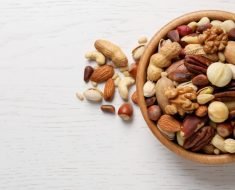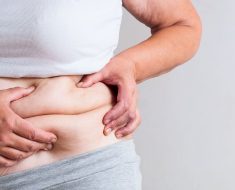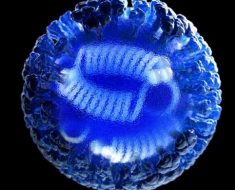High blood pressure: Lifestyle changes to reduce reading
We use your sign-up to provide content in ways you’ve consented to and to improve our understanding of you. This may include adverts from us and 3rd parties based on our understanding. You can unsubscribe at any time. More info
If your blood pressure is too high, it puts extra strain on your blood vessels, heart and other organs, such as the brain, kidneys and eyes. This is because the long-term force of the blood against pushing against your artery walls increases the workload of the heart and blood vessels. Fortunately, you can reverse this harmful process, thereby staving off the risk of serious heart problems, such as a heart attack.
Research suggests regularly consuming beetroot juice can bring blood pressure levels back down to a healthy range.
The British Heart Foundation (BHF) cited research funded by Queen Mary University of London that suggests “drinking a cup of beetroot juice each day could significantly lower the blood pressure of people with high blood pressure”.
High blood pressure patients who drank 250ml of beetroot juice a day were found to have blood pressure levels back in the “normal” range by the end of the study.
The study, involving 64 volunteers, provides significant evidence of a long-lasting reduction in blood pressure by supplementing the diet with nitrates in patients with high blood pressure.

The level of reduction was similar to that from some forms of blood pressure medication.
What’s more, no adverse side effects were observed in people taking the daily dose of nitrates, in the form of beetroot juice.
“The results suggest that supplementing the levels of nitrate in the diet can be a simple and effective way to manage high blood pressure,” noted the BHF.
“But a study on many more patients is needed before this approach can become a recommended treatment for high blood pressure.”
DON’T MISS
How to live longer: The warm red drink that boosts longevity [TIPS]
How to lose visceral fat: The free daily activity that helps [INSIGHT]
Diabetes type 2: The takaway you should AVOID [ADVICE]
Professor Amrita Ahluwalia, who led the research, said: “This research has proven that a daily inorganic nitrate dose can be as effective as medical intervention in reducing blood pressure and the best part is we can get it from beetroot and other leafy green vegetables.
“For those looking to work dietary nitrate into their daily diets, the trick is not to boil the vegetables – as dietary nitrate is water soluble – but steaming, roasting or drinking in a juice all has a positive effect.”
Dr Shannon Amoils, Senior Research Advisor at the British Heart Foundation, which funded the study, said: “This interesting study builds on previous research by this team and finds that a daily glass of beetroot juice can lower blood pressure in people with hypertension – even those whose high blood pressure was not controlled by drug treatment.
“The possibility of using a natural product, rather than another pill, to help lower blood pressure, is very appealing. The trial is, however small, and the next step will be to see if this result can be repeated in a much larger group of people with high blood pressure and over a longer period of time.”

General dietary tips to lower high blood pressure
Arguably the most important dietary tip to lower high blood pressure is to cut back on salt.
In fact, “eating too much salt is the single biggest cause of high blood pressure”, warns Blood Pressure UK.
How does salt raise your blood pressure?
Blood Pressure UK explains: “Salt makes your body hold onto water. If you eat too much, the extra water in your blood means there is extra pressure on your blood vessel walls, raising your blood pressure.
“If you already have high blood pressure, too much salt will raise it further, and may mean that any blood pressure medicines you’re taking don’t work as well as they should.”

UK health guidelines advise that adults eat less than 6g (0.2oz) of salt a day, which is about a teaspoonful.
“Eating a low-fat diet that includes lots of fibre, such as wholegrain rice, bread and pasta, and plenty of fruit and vegetables also helps lower blood pressure,” notes the NHS.
According to the health body, you should aim to eat five portions of fruit and vegetables every day.
Improving your diet can also help you to maintain a healthy weight, which is key to blood pressure control, it adds.
Source: Read Full Article





